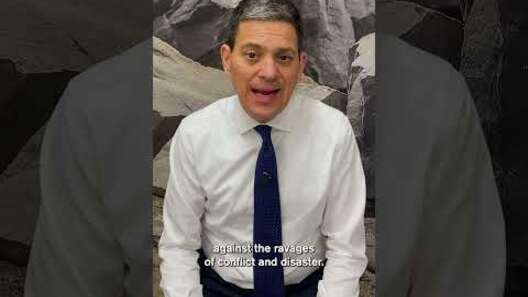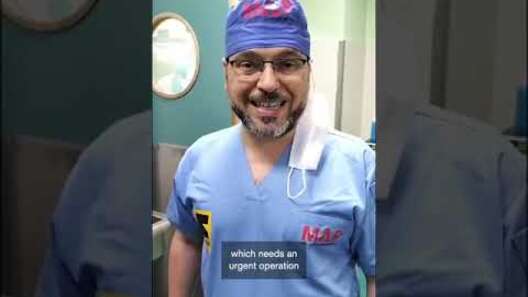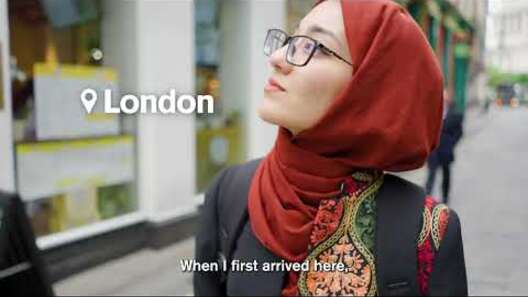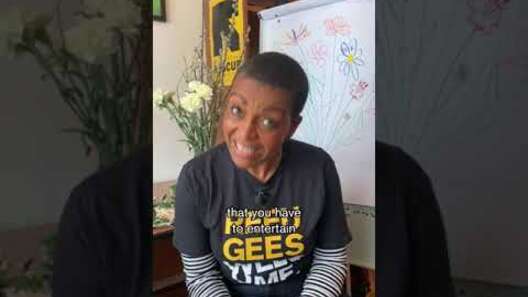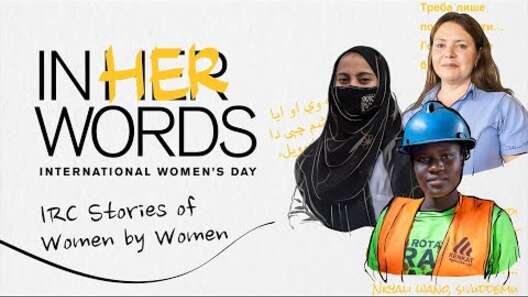Andrii Kokorin, 52, and his wife Mariia Borysova, 39, will never forget the day they met. They were restoring an old monastery together in Ukraine—Andrii as a builder and carpenter and Mariia as an artist.
“You sat down next to me, and, by some divine providence, I gave you my hand, and you gave me yours,” said Andrii. “And I realized it was love.”
Today, the pair are living in the United Kingdom after fleeing the war in Ukraine along with their four children, Mariia’s parents and their beloved pet Labrador Retriever, Rosie. Forced to leave behind their home and business manufacturing children’s furniture, the family drove for five days to Bulgaria and stayed with a family friend for two months before finally being accepted into the sponsorship programme in the UK. As a father of four, Andrii was legally allowed the leave Ukraine. They now live with their sponsor, Clara, in Farnham, a town southwest of London, rebuilding their lives while they hope for the day they can return to Ukraine.
When forced to flee their home, refugees like Andrii and Mariia can only carry so much. But they also bring so many intangible gifts to their new communities: hopes and dreams, experiences and talents, traditions and family stories, resilience and determination.
Watch as Andrii and Mariia interview one another about their decision to leave home, their story as a couple, and the hopes and dreams they’ve carried throughout their journey.
Find out more Rescue.org/UK/WorldRefugeeDay
Mariia: I think our main task was to save our children.
Q Mariia: Do you remember how we met?
Andrii: Sure. It’s impossible to forget that. I’ll remember it for a lifetime. I was restoring the monastery, and some artists came to us to paint the walls. And you were one of them. Passing by for nine months, you didn’t notice me. I didn’t see you. One day the priest suggested making the stonework of the floor more sophisticated and adding mosaic to it. That was the moment when you came along. We went to the van to pick out the stone for the mosaics. You sat down next to me, and by some divine providence, I gave you my hand and you gave me yours. And I realised it was love.
Q Andrii: What is your happiest memory of our life together?
Mariia: In Ukraine?
Andrii: In Ukraine.
Mariia: Well, this is, of course, our acquaintance you’ve just told about … the births of our four children, Asya and the boys. Every day it was … every time it was like a miracle. Two of them were born in Kyiv, two in Kharkiv. And now, of course, I recall a lot of those things that we didn’t appreciate when we were there. I think of our house, our apartment in the centre of Kharkiv. Thank God it’s intact now, but it’s empty, there’s no one there. There’s our stuff lying there the way we left it, the beds spread out. I’m very … those memories, they come whether I wake or sleep.
Q Mariia: Do you remember when we decided to leave Ukraine, and how worried we were about which of us would go and who would stay?
Andrii: Yes, I do remember. It was not known until the end whether I could leave Ukraine, being a farther of four children. I wasn't sure if I could leave the country legally. But it was how you felt that decided everything. Those panic attacks that you and our eldest daughter started to have. That constant terror, constant fear, that something might happen to the children, And that was probably the moment when we decided to leave the country after all.
Mariia: We were going, not knowing if you could go, or you'd come back, and we'd go ourselves. I was really scared because I cannot drive. [Smiles.] You were driving, and thank God we did it.
Andrii: Yes, that was the question until the last moment, right up to the moment we crossed the border. And when we were crossing it, they took my certificate of a father with many children, and they said, "You can leave,” and I remember how happy you were, that I could go on with you.
Mariia: I think our main task was to save our children, to preserve their lives, health and mental health, because the situation in Ukraine was very destructive.
Andrii: But I was ready to return to Kharkiv, even if they wouldn’t let me out, you know it.
Mariia: It’s good to have you with us. [Laughs.]
Q Andrii: How hard was it? How hard was it for you to decide to leave Ukraine?
Mariia: Well, first we all thought we could wait it out, that it would end quickly, or it wouldn’t be so scary. But this was not the case, because Kharkiv is very close to the border. It was more damaged in the early stage than the other places. And I felt scared waking the kids up every time so that they could go to the basement into the shelter several times a night. That was the most horrifying thing I’ve ever experienced. So the first chance we got when we realized we had to leave, it was scary, but it was the right decision. And I didn’t doubt it for a minute. It was probably easy to leave but very sad and scary.
Q Mariia: How did you feel when we left Ukraine?
Andrii: Oh, that was a strange feeling. Bitterness on the one hand, and great joy on the other, that our children will finally feel a little safer. Mixed feelings.
Mariia: I was very happy that we managed to leave in two cars with our parents and even with our dog, our Labrador Rosie.
Andrii: Yes
Mariia: Because the animals also suffered a lot in this situation. Many people couldn’t take their animals.
Andrii: And those dogs tied up next to the train station, that people couldn’t take with them on the train, they were just not allowed. That was terrible.
Q Andrii: How did you feel when we got to the U.K.?
Mariia: I guess it was the first time I felt it, that feeling of home, in those two months. I don’t know why, because in Bulgaria, I was feeling that we were at a crossroads, that our journey was not over yet. And we finally got our visas, got on the plane, flew in, and got off, met our wonderful family, our sponsor Clara—an amazing woman, amazing family she has—I felt a kind of relief. It felt like, I don’t know why, that we were home. Though it’s a temporary home, we’ll be fine here.
Q Mariia: When did you feel most welcome in the U.K.?
Andrii: Oh, I can’t stop feeling it every day. But probably the first time was when we got to our apartment that became ours for those six months. We stepped in—everything was thought out.
Mariia: With so much love.
Andrii: With so much love, yes. Toothbrushes prepared for us and our children, beds laid out, lots of toys. Yura, who couldn’t sleep until 2 a.m., came to us and …
Mariia:… was playing Lego.
Andrii: And it gave a sense of home, yes, and gratitude for all the hospitality we have received. Smiling people in the street still amaze me. I feel like I’m at home and it’s just some relative of mine walking and smiling at me. I feel this hospitality every day.
Mariia: A lot of support from strangers, and they want to hear our story and lend a helping hand. Somehow it’s just amazing. I feel it, too.
Andrii: Do you remember that lady we met by St. Andrew’s church? Who just started talking to us about the situation in Ukraine—that we and all four of our children had to run away—started crying. And it’s amazing how much these people …
Mariia: What a big heart they have.
Andrii: Yes, a big heart to perceive it that way.
Mariia: Yes, I am very grateful to the U.K. sheltering us, for giving us a true home.
Q Andrii: What are your hopes for our family’s future?
Mariia: It’s a hard question because we weren’t preparing for war. And this situation, it got us off the rails. When we had plans, right? Asya wanted to go to a theatre university, the boys attended their sports clubs, we were working in our studio, and everything was clear. Now everything is unclear. Sometimes I feel like I’m in a movie. I mean, all of a sudden, I’m in London now. And I look at myself a little bit from the outside. It’s hard for me to imagine what's going to happen next. Of course, all of us are hoping that the war will be over. We wait for it, every day we wait for this madness to stop. It’s important to me. But I've decided that I’m going to live for today. We’re in the U.K. now, and we’re fine here. And while part of our heart, of our soul, is with our friends and loved ones who are in Ukraine, it’s impossible to live as if everything is fine. But for the sake of our children and for the future that will come anyway, we are safe—that’s the main thing. I think everything will be fine. We carry on. We’re together—that’s the most important. We can raise children and teach them. [Smiling.] I want them to learn to be as polite and kind as the English. Because we’re in this environment that’s so … so awesome.
